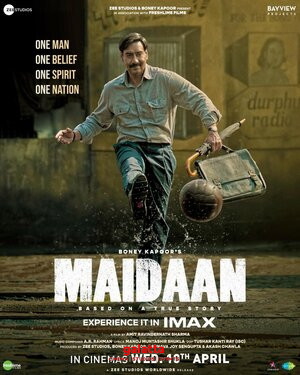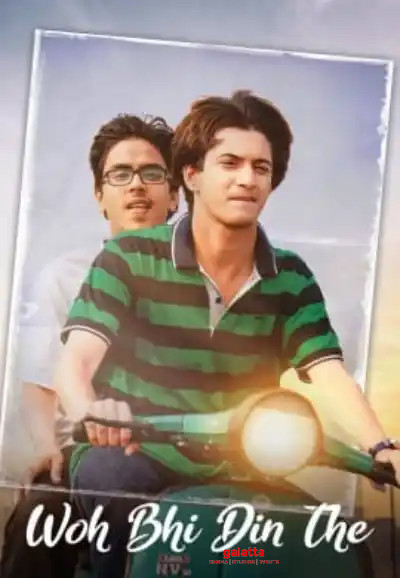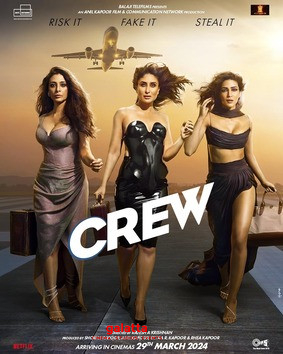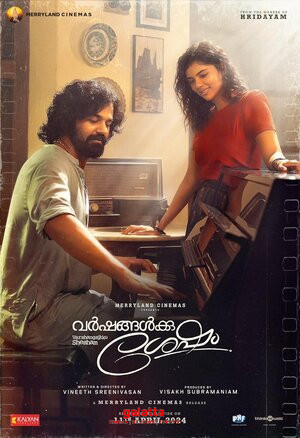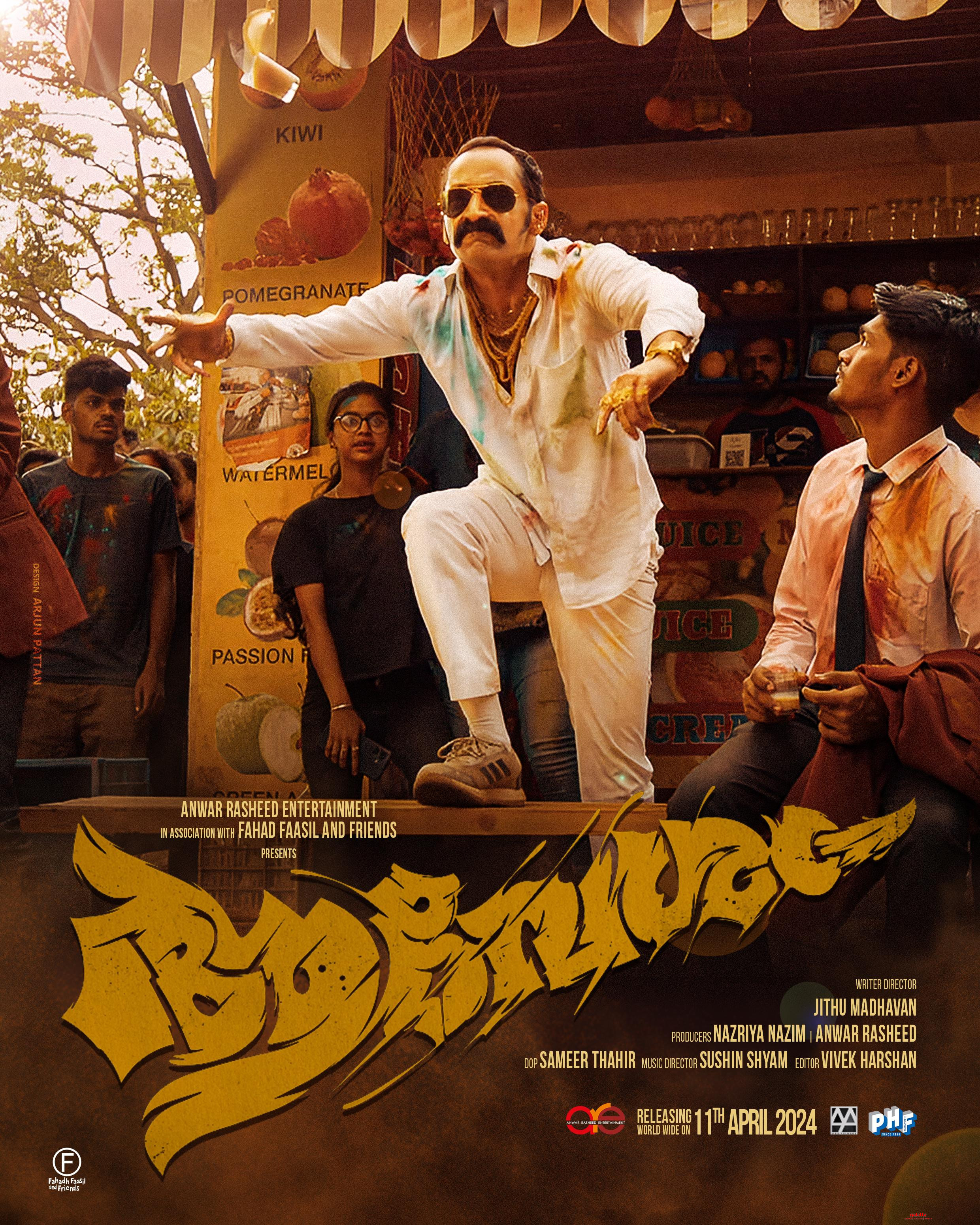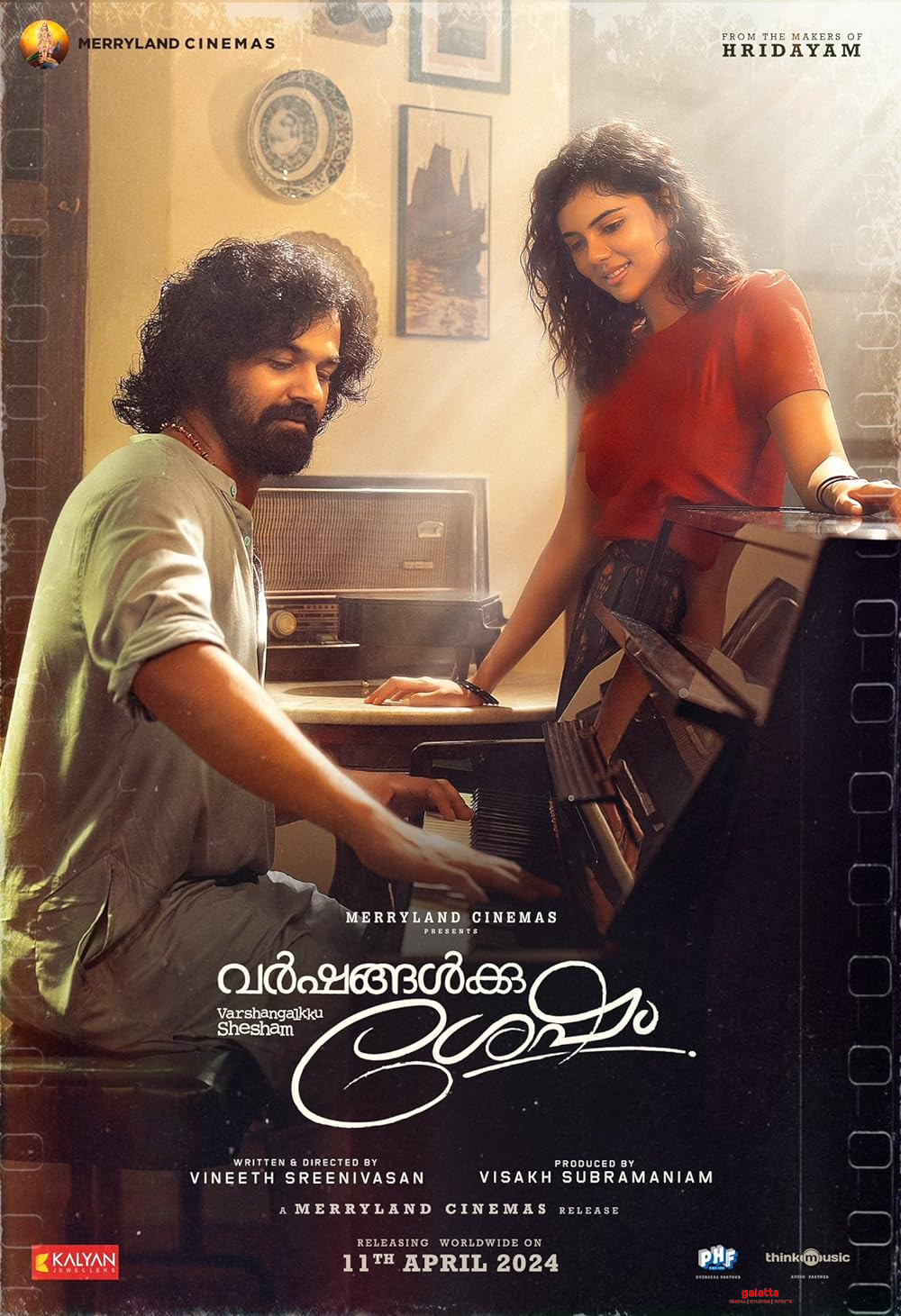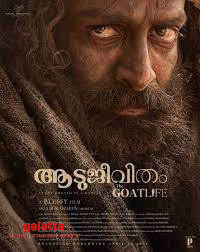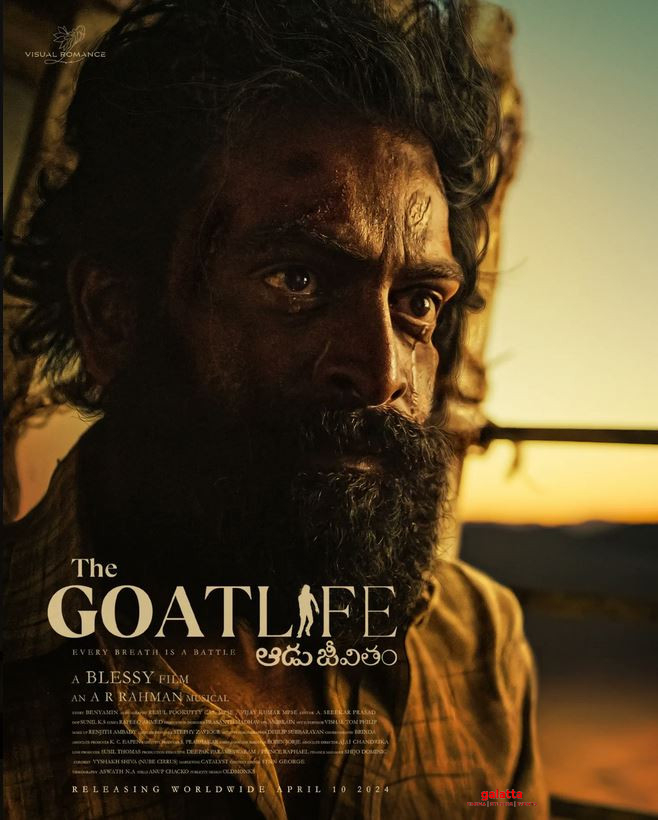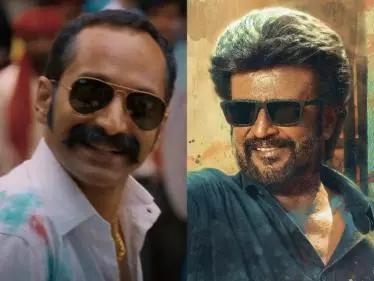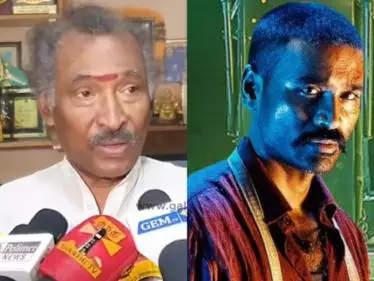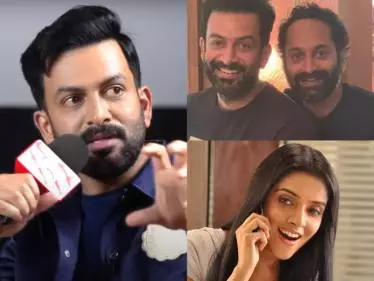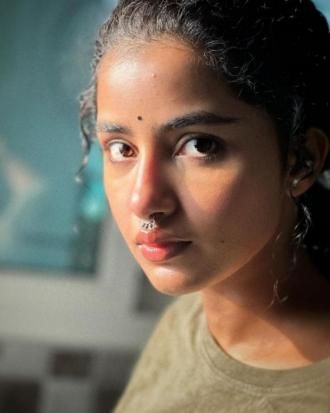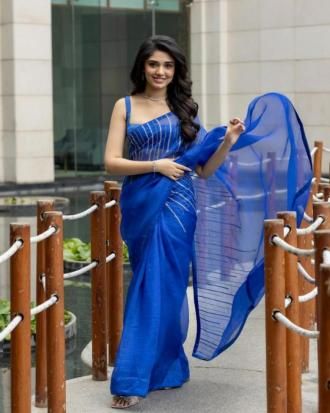Aavesham Movie Cast & Crew
One week ago, had you asked me for my pick for Screenplay of the Year-so-far, it would have hands-down been Gireesh AD’s Premalu. But now, after watching the brilliantly done Aavesham, it’s a tie. Like Gireesh, Jithu Madhavan doesn’t seem to be a fan of “plot”. He prefers to put his efforts into his characters and his writing, and Aavesham comes off like an extension of his first film, Romancham. There, a few men find themselves unleashing a spirit, an impulsive act that backfires on them. Here, a few men find themselves unleashing a gangster named Ranga – and this impulsive act, again, backfires on them. Like the ghost in Romancham, Ranga – played by Fahadh Faasil – is practically an other-worldly character. He wears spotless white. He has some ten kilos of gold on his body, in the form of rings and chains. His black handlebar moustache is complemented by his black aviator glasses. He’s multilingual, speaking Kannada and Malayalam and Hindi.
He’s also one of the greatest characters ever written for the screen. On the surface, there might be this tendency to use the word “mass” for him – because he gets a lot of highlight moments befitting a mass hero that make the theatre explode. But Ranga is more. Watch him do a towel-dance after a bath, and then watch him in a fight. He doesn’t actually fight. Like an action choreographer, he asks his goons to break this guy’s arm and that guy’s leg. The magic in the writing of this character is twofold. One, it keeps us guessing whether this man is a criminal or a cartoon – the payoff at the end is huge. And two, at a subtextual level, Ranga is a spoof of everything that passes for masculinity in our mainstream movies. Jithu Madhavan takes the “good-hearted rowdy” trope and runs with it as though he invented it.
And Fahadh returns the favour. The character may be all surface – all that white, all that bling – and it is entirely possible to enjoy Aavesham without taking it seriously at all. But if you dig deep, you will see that – like all good actors – Fahadh takes this cartoon character seriously, and he plays Ranga like he would play a dramatic role, with thought and total commitment and investment. It’s a glorious performance, a combination of Jim Carrey’s rubbery physicality in The Mask and the self-celebration of masculinity that we saw in Fahadh’s own Shammi from Kumbalangi Nights. Fahadh plays with Ranga’s physicality, his tonality. He balances the exaggerations with the more controlled emotions. Fahadh Faasil basically tells all insecure heroes that you don’t have to be in every scene of a movie, and yet, you can be the most unforgettable part of that movie!
And how does Ranga come into the picture, in this story set in Bengaluru? Actually, for a long time, he is out of the picture. Aavesham opens in an engineering college, where the life-size model of an aeroplane is kept on display. A mother tells her son – Bibi (Mithun Jai Shankar) – that one day, he should build something similar. In other words, she wants him to soar. But the minute she enrols Bibi in a hostel and leaves, his life takes a different turn. He has two roommates, Aju (Hipzster) and Shanthan (Roshan Shahnavaz). They antagonise a senior named Kutty (Midhutty), and pay the price. They are stripped and beaten up, and then – suddenly – Kutty hands them drinks and calls them his “bros”. (This screenplay is filled with tone changes.) Apparently, every rowdy-like person likes to surround themselves with “bros”. Keep this fact in mind, because it gets a payoff at the end. In the midst of people who stick around only for booze and money, these gangsters seek people who will stick around for love, for friendship.
But at the moment, Aju is in no mood to be a “bro”. The three boys are written well, and played well. Shanthan is the one who is happy following the path of least resistance. Bibi is written as someone who isn’t easy to read. His character arc is a beauty. And Aju is the alpha-male of the group. He wants revenge. He looks for a rowdy to beat up Kutty, and that’s how he and his friends find Ranga. Just wait till you see the location of the man’s “hero-introduction scene”. Ranga is at once a celebration of all things macho and a deconstruction of all things macho. There’s a sensational moment where he shows – in a stunning top-angle shot – how every goon in the bar fears him. And yet, watch that mass-hero staple of the slo-mo run being spoofed. Ranga runs in slo-mo, and… you’ll have to see the rest for yourself.
Slowly, in trying to befriend Ranga, Aju and Bibi and Shanthan are drawn into his larger-than-life life and his violent actions. You can sense a subtext about being drawn to macho-ness and then being repelled by too much macho-ness – but the film is so light on its feet and so bloody fun that you may not think about any of this until much later. The jokes keep coming like bullets from a machine gun. There’s a revolver that won’t fire. There’s a spoof of the “mother sentiment” so dear to our mainstream movies. The bit woven around a grihapravesham is a riot. And there’s an amazing set piece involving a game of dumb charades, where Fahadh/Ranga goes from grinning clown to scary criminal and back to grinning clown. Sushin Shyam’s wacky score is a perfect accompaniment to the wacky proceedings.
Aavesham is in no hurry to tell its story, and that’s why every character, every set piece registers so well. The action stretches are electric, with cinematography by Sameer Thahir and editing by Vivek Harshan. You get the sense of watching a massive circus event at Las Vegas, and the cutting is as smooth as silk. But also consider the dramatic stretches with other characters, who get smaller screen time. Mansoor Ali Khan plays a rowdy. He also plays the archetype for Ranga. He is who Ranga will be in a couple of decades. And Ashish Vidyarthi, as a college big shot, gets a brilliant bit where he proves that you can exude threats and gangster vibes even while wearing a suit. He owns a gun, but his choice of weapon is the English language.
But after Ranga, the film’s most lovable character is Amban, the loyal sidekick played beautifully by Sajin Gopu. The man is built like a mountain (it shows especially when he stands next to Fahadh), and yet, he’s like a kid in a candy store. Every opportunity for a fight brings him great delight. Whether he is narrating Ranga’s real or imagined exploits or taking knife cuts on his back, Amban transforms the traditional sidekick character into a violent teddy bear. Not since Munna Bhai and Circuit has a rowdy pair appeared so lovable. On the surface, Aavesham may look like a big dumb action flick that asks you to leave your brains at the door, but actually, it is a very smart combination of action and comedy and drama. I loved every second of it, and I demand a sequel with Amban and Ranga.


